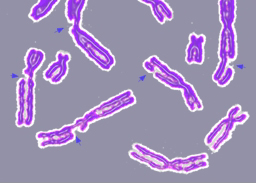Epigenetics, the process of altering what genes are activated in a certain DNA sequence, is in many ways, still a mystery to the scientific community. How it is done chemically, as well as what environmental factors cause it. New discoveries have been made, linking surprising regulation enzymes and cultural factors. Ultimately, no matter what causes this phenomenon, it is a key factor in the evolutionary development of many species, and the world as we know it.
Tryptase:
A new study has shown the role of the enzyme tryptase in epigenetic development. Tryptase works to cleave the tails of histones, which will stop some epigenetic changes, while cells that lack tryptase, begin to proliferate uncontrollably. Most importantly, this proliferation causes cells to lose their identity. With this discovery, we see that by introducing tryptase, we can influence epigenetic development in cells.
Culture:
Another recent study has shown that cultural and environmental factors can influence a genome rather than only genetic ancestry. By studying the genetic sequences of both Mexican and Puerto Rican children, researchers discovered that there were differences that couldn’t be accounted for by ancestry. The rest may be an impact on genetic makeup by differences in experiences, practices, and culture distinct to the two ethnic subgroups.
Ultimately, epigenetics is a fascinating concept that is often influenced by factors we might not suspect. As the scientific community continues to make discoveries, the epigenetic phenomenon continues to excite and inspire researchers.
Photo: https://www.sciencedaily.com/releases/2017/01/170110120638.htm



Leave a Reply